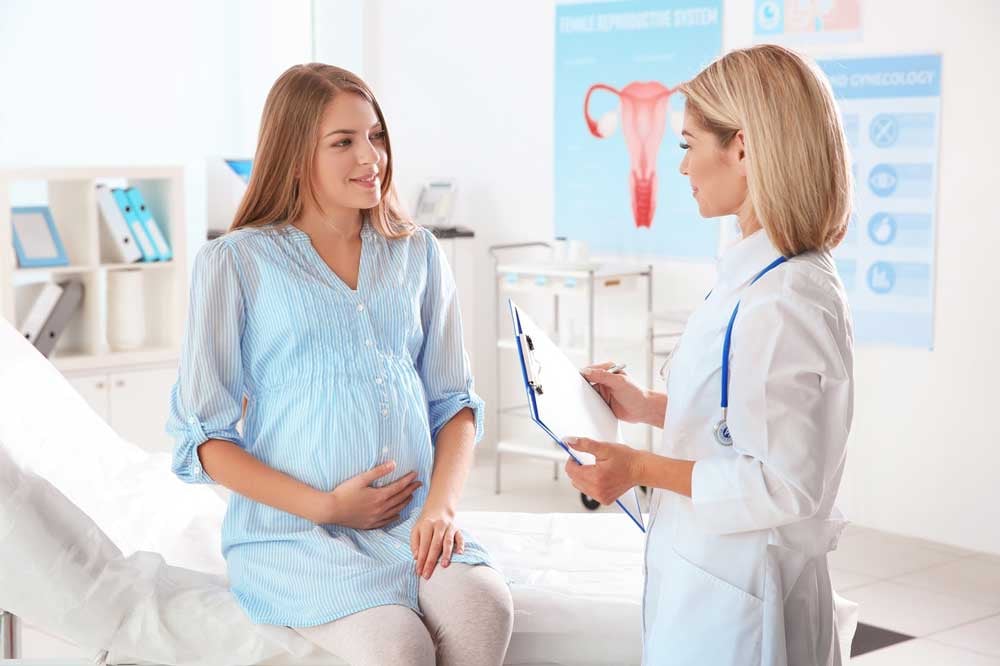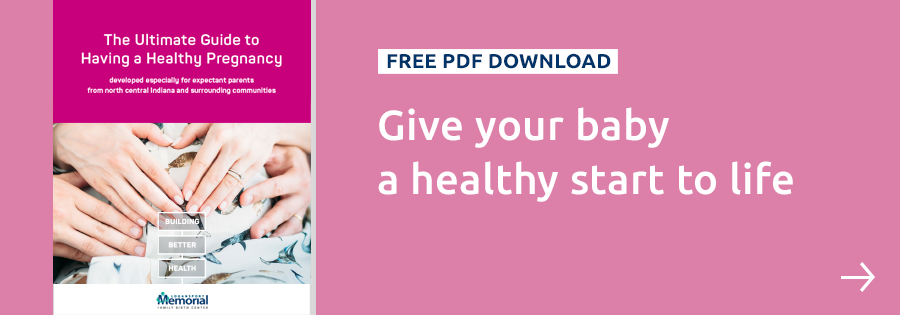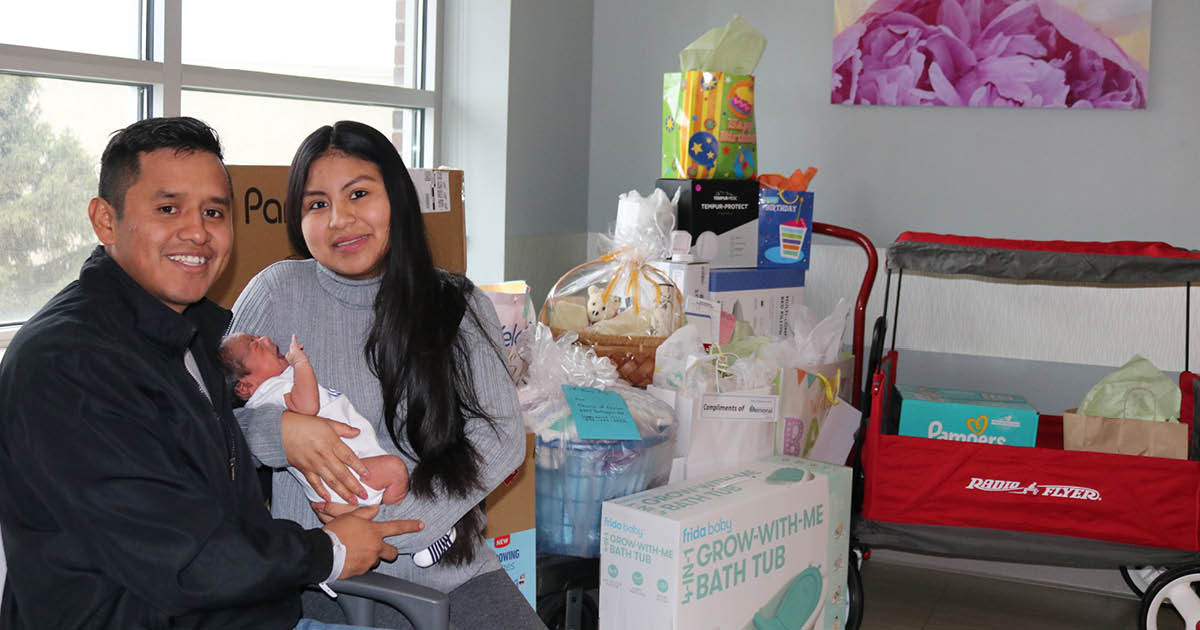This article is part of the Ultimate Guide to Pregnancy.
Even if you didn’t have high blood pressure before you got pregnant, you might experience an increase in blood pressure during your pregnancy. During prenatal visits with your OB/GYN doctor, your care team will monitor your blood pressure because this serious condition, also called preeclampsia, can cause complications for you and your baby.
What is preeclampsia?
Preeclampsia is a dangerous pregnancy complication that typically begins after 20 weeks of pregnancy. Also known as gestational hypertension, preeclampsia can usually be managed with oral or IV medications until delivery. When left untreated, preeclampsia can lead to seizures, liver or kidney damage, or bleeding problems in the mother. It can also distress or delay growth in the fetus. Unless preeclampsia is mild, doctors usually seek to deliver the baby early.
Keep reading to learn what else should you know about preeclampsia.
 What is preeclampsia?
What is preeclampsia?
Symptoms of a high blood pressure problems during pregnancy
Monitoring blood pressure at each prenatal visit is an important part of care during pregnancy. High blood pressure can develop slowly but it is most often sudden with preeclampsia. If blood pressure is higher than normal on two occasions, it is a sign of potential preeclampsia.
Other preeclampsia symptoms include:
- Excess protein in urine
- Severe headaches
- Blurred vision
- Nausea
- Decreased urine output
- Sudden weight gain or swelling
If you are pregnant and experience severe headaches, blurred vision, severe abdominal pain or severe shortness of breath, do not wait until your next prenatal visit to get help. These are signs of dangerously high blood pressure and warrant a visit to the emergency room.
If you’re diagnosed with preeclampsia late in your pregnancy, your doctor will likely want to induce labor right away. If it is too early in the pregnancy to safely deliver the baby, you will be closely monitored and it will be very important to watch your health closely and regularly see your doctor.
Postpartum preeclampsia
Monitoring your health doesn’t stop after you have the baby. Postpartum preeclampsia—when a woman has high blood pressure and excess protein in her urine soon after childbirth—is rare but can cause serious problems for the mother including seizures, pulmonary edema, stroke, coma and more.
Most cases of postpartum preeclampsia develop within 48 hours of childbirth, but it sometimes takes 4–6 weeks for complications to occur.
If you aren’t feeling well after delivering your baby, don’t assume it’s normal. Talk to your doctor about how you're feeling.
Close-to-home prenatal care in north-central Indiana
You’re in good hands with Logansport Memorial Hospital. Our care team provides the highest quality of obstetrics and gynecology care that you need before, during, and after your delivery.




